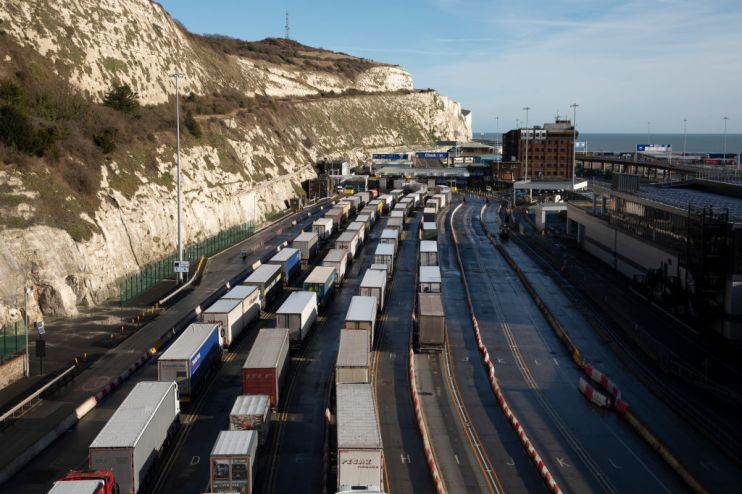Believe it or not, post-Brexit VAT doesn’t have to be taxing

The free trade deal signed by the UK and the EU was supposed to herald a new dawn in the relationship between the two sides. The Free Trade Agreement and the UK’s exit were intended to give us control of our borders, money and laws and therefore promote a dynamism in this country which was seemingly not achievable as a member of the European Union.
On the surface, frictionless trade should continue, much as there was before Brexit, but with some additional paperwork. However, as Michael Gove admitted, there would be ‘occasional bumpy moments’ and ‘some disruption’.
The UK is no longer part of the EU Single Market and Customs Union and the changes this brings with it are here to stay.
Read more: Sign up to City A.M.’s daily newsletters
But many UK businesses have been unprepared for what this actually means. Although the Government warned businesses to prepare for Brexit, deal or no deal, and went to great lengths to publish as much information as possible through their various channels, the problem was that, as we moved closer to the end of December 2020, with no deal outline really emerging, it was difficult to know what they were preparing for.
Despite the EU being one trading bloc, effectively there are now 27 new countries for each company to deal with – new rules, regulations and language barriers for each one in most cases. Unfortunately, smaller to medium businesses have been hit hardest as they grapple with the burden of bureaucracy they are now having to face.
Get one thing wrong in the reams of new paperwork and goods can be impounded or fines levied. VAT rates can vary from 20-27 per cent. If you are selling your goods in multiple European countries that is hours more work now needed to make sure they sail through borders.
Read more: The NHS needs a reboot
We have all read the terrible stories of businesses cancelling their supply routes, shipping agents and freight forwarders suspending shipping cross continent, customs officials holding onto goods at borders all the way to sandwiches, shellfish and even Percy Pigs being confiscated.
All this can most probably be blamed on the lateness of the trade deal, the inability of businesses to adapt in time and most likely just the reams of new paperwork which most companies had never seen in their entire existence of trading.
Businesses have some difficult decisions to make in the coming months, they must decide on where best to send their goods into Europe, through which countries and by which type of transport.
There are options.
Do they prioritize speed over cost and ensure the quickest supply routes, albeit more costly or vice versa? In many instances businesses have to consider the additional costs of Import VAT, potential tariffs if they cannot show wholly UK manufactured products and the burdensome cost of additional admin, can they absorb all or some, or do they need to pass onto their customers? Strategic choices of how best to continue trading into the EU need to be made.
For some, the financial implications could be devastating.
But all all is not lost: many do not realise they can claim back a lot of the VAT they are paying and there are ways of making the journey easier.
In preparing for a post-Brexit world, experts in the field of VAT and International trade have spent a lot of time understanding the complexities and coming up with solutions on how to navigate UK businesses through this difficult period.
The importance of ensuring an end-to-end solution which ticks all the right boxes, minimises any compliance bottlenecks and, most importantly, reduces the cost through VAT refunds etc. cannot be stressed enough. Finding the right expert to handle these complexities will be the true story of Brexit in these coming months as there is a real risk that the bureaucracy will set British businesses back, at least in the short term, as all of these things, ultimately, result in a lack of competitiveness for British businesses.
With businesses concerned about Covid-19, a struggling economy and keeping both staff and customers happy in these trying times, the market for consultative, solutions driven experts trying to do our bit in ensuring the smooth continuous trade for UK businesses has never been so needed as it is now.